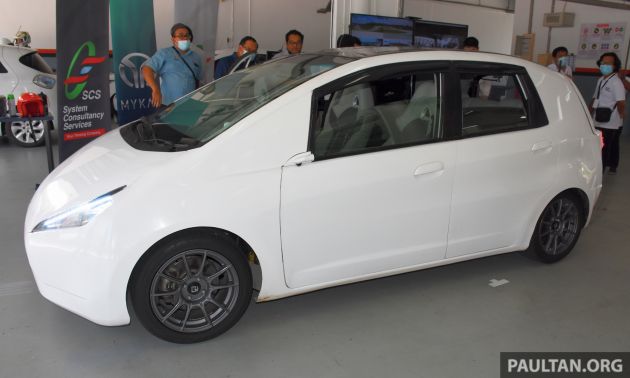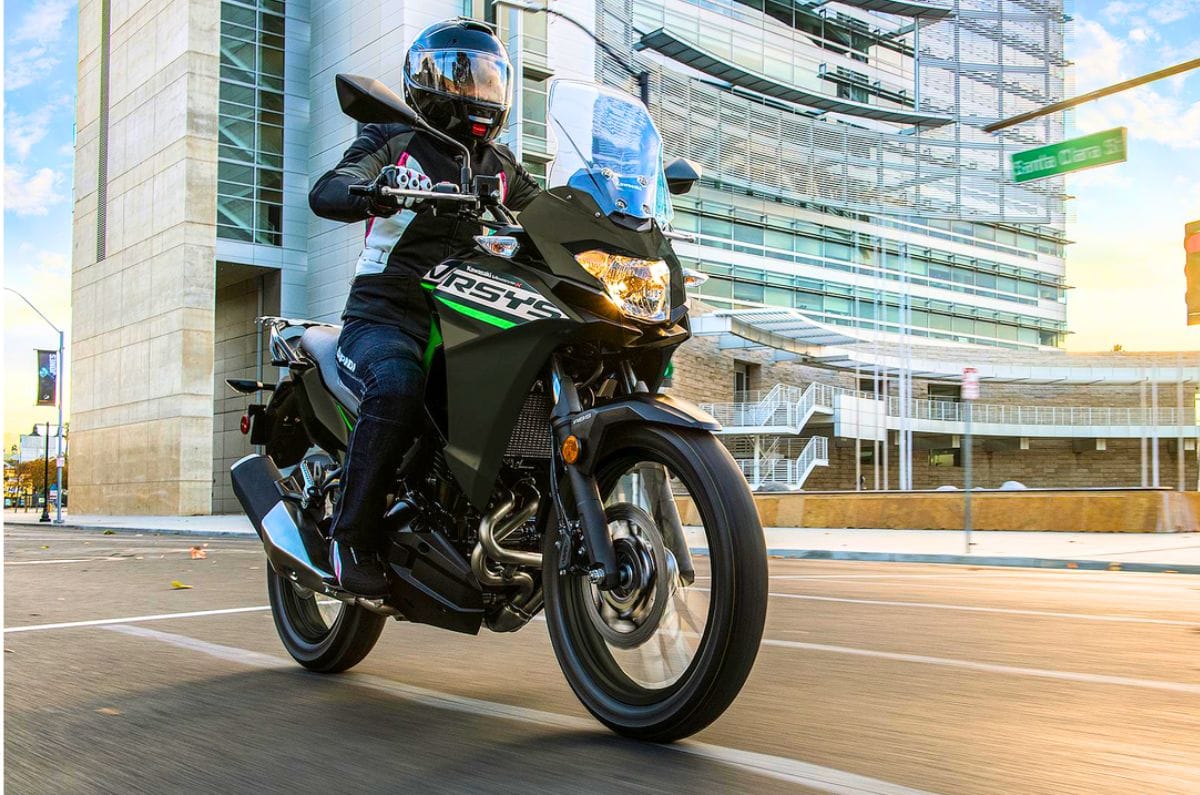Building a Malaysian electric car for under RM50k – EV Innovations shows the possibility with its MyKar study
An update on the MyKar electric vehicle project from Malaysian start-up company EV Innovations. Yesterday, the company signed a memorandum of agreement (MoA) with the Malaysia Automotive, Robotics and IoT Institute (MARii) regarding the homologation process of the project to make it ready for manufacturing.
The company, a subsidiary of local information and communication technology provider System Consultancy Services (SCS), also signed a MoA with Ingress Corporation to look into the manufacturing of parts. The signing ceremonies, which were held at the Sepang International Circuit, also saw the MyKar prototype being previewed through another working presentation.
The car, which is essentially a proof of concept vehicle, has been around for a while. It made its first public appearance at the Kuala Lumpur Engineering Science Fair in November 2019, and was last seen in a preview last September at the Putrajaya Airstrip.


Not much has changed with the exterior since then, with additional LED light strips and prominent MyKar badging at the rear of the car – along with two signal antennas on the upper section of the rear lid – being the most visible changes.
To recap, the exterior borrows the outline from the previous-gen Honda Jazz, with the doors and suspension taken directly from the donor car. The EV’s fibreglass composite bodyshell, which was built by DK Composites, sits on a ladder frame/tubular chassis fabricated by EV Innovations.
There are however mechanical revisions. When shown in September, the MyKar featured a 10 kWh capacity battery pack made up of 32 China Aviation Lithium Battery (CALB) lithium-ion phosphate (LiFePO4) cells, which offered an operating range of around 150 km and a charging time of about three hours.



The battery has since been upgraded to a 28.7 kWh unit, doubling the travel range to 300 km. Charging time is longer as a result, but not by much, at 4.3 hours to full at a charging rate of 6.6 kW. The inclusion of the higher capacity battery has also increased the kerb weight of the car from 900 kg to 1,016 kg.
The output remains as it was, at 24 kW (32 hp) and 30 kg/m (295 Nm), but the two 12 kW hub motors that drive the rear wheels have been reconfigured in terms of performance. Previously, the 10 kWh version had a maximum speed of 104 km/h and a 0-100 km/h time of 16.7 seconds. With the new setup, the top speed has gone up to 140 km/h, although that has been achieved at the expense of initial pull, with the 0-100 km/h time now lengthening to 18 seconds.
The MyKar’s side view camera system and dual LCD screen viewers inside the car as well as the roof-mounted solar panel strips – which charges a separate battery that powers the car’s solid-state AC system – is still to be seen, but attempts have been made to refine the presentation of the cabin. There’s a different GUI as a result of a new, smaller central screen, and the car now features remote telemetry capability, courtesy of new onboard communications (hence the presence of the antennas).


The MyKar remains very much a showcase of the possibility of an EV being made locally for under RM50,000, but the company continues to say that it itself will not build such a vehicle.
At the event yesterday, SCS executive chairman Datuk Khalilur Rahman Ebrahim reiterated what he said last September, that EV Innovations wasn’t looking to develop the MyKar commercially but is merely carrying out research and development of the EV system and utilising the vehicle as a test bed to showcase the possibilities of the tech.
“SCS is not interested in selling a car. We won’t have a brand for it, and it’s never going to be called MyKar. We are selling the technology to those interested in making EVs,” he said. The company is hoping to attract an institutional strategic partner or an individual retail investor looking at going into electrification.



He added that such a project would need the engagement of many stakeholders, such as those making parts and battery management systems (BMS), and these areas would also need to be addressed. To this end, the company will be working together with MARii not just on homologation aspects of the EV but also the development of related technologies such as BMS, vehicle communications protocols and wireless charging tech for EVs.
Separately, the company also previewed a Proton Arena that it had converted into an EV. The project, which saw the ICE and transmission components being replaced with an electric powertrain, doesn’t just showcase the possibilities of EV conversions (which are currently not legal).
The company said that the study also provides a view of how electrification can provide a more economical – and lighter – alternative in manufacturing a mass-produced car, utilising deletive manufacturing in this case to highlight the fact.






























GALLERY: EV Innovations MyKar, Putrajaya preview 2020 


















The post Building a Malaysian electric car for under RM50k – EV Innovations shows the possibility with its MyKar study appeared first on Paul Tan's Automotive News.
from Paul Tan's Automotive News
Read The Rest:paultan...




Post a Comment